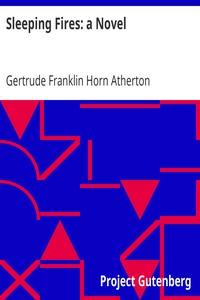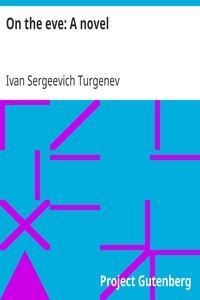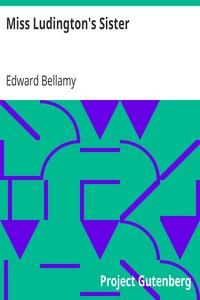Read this ebook for free! No credit card needed, absolutely nothing to pay.
Words: 51315 in 30 pages
This is an ebook sharing website. You can read the uploaded ebooks for free here. No credit cards needed, nothing to pay. If you want to own a digital copy of the ebook, or want to read offline with your favorite ebook-reader, then you can choose to buy and download the ebook.
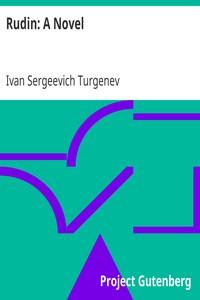

: Rudin: A Novel by Turgenev Ivan Sergeevich Garnett Constance Translator - Man-woman relationships Fiction; Russia Intellectual life 1801-1917 Fiction; Upper class Russia Fiction
Translator: Constance Garnett
RUDIN
A Novel
LONDON: WILLIAM HEINEMANN 1894
INTRODUCTION
Turgenev is an author who no longer belongs to Russia only. During the last fifteen years of his life he won for himself the reading public, first in France, then in Germany and America, and finally in England.
In his funeral oration the spokesman of the most artistic and critical of European nations, Ernest Renan, hailed him as one of the greatest writers of our times: 'The Master, whose exquisite works have charmed our century, stands more than any other man as the incarnation of a whole race,' because 'a whole world lived in him and spoke through his mouth.' Not the Russian world only, we may add, but the whole Slavonic world, to which it was 'an honour to have been expressed by so great a Master.'
This recognition was, however, of slow growth. It had nothing in it of the sudden wave of curiosity and gushing enthusiasm which in a few years lifted Count Tolstoi to world-wide fame. Neither in the personality of Turgenev, nor in his talent, was there anything to strike and carry away popular imagination.
But there was in him such a love of light, sunshine, and living human poetry, such an organic aversion for all that is ugly, or coarse and discordant, that he made himself almost exclusively the poet of the gentler side of human nature. On the fringe of his pictures or in their background, just for the sake of contrast, he will show us the vices, the cruelties, even the mire of life. But he cannot stay in these gloomy regions, and he hastens back to the realms of the sun and flowers, or to the poetical moonlight of melancholy, which he loves best because in it he can find expression for his own great sorrowing heart.
Even jealousy, which is the black shadow of the most poetical of human feelings, is avoided by the gentle artist. He hardly ever describes it, only alluding to it cursorily. But there is no novelist who gives so much room to the pure, crystalline, eternally youthful feeling of love. We may say that the description of love is Turgenev's speciality. What Francesco Petrarca did for one kind of love--the romantic, artificial, hot-house love of the times of chivalry--Turgenev did for the natural, spontaneous, modern love in all its variety of forms, kinds, and manifestations: the slow and gradual as well as the sudden and instantaneous; the spiritual, the admiring and inspiring, as well as the life-poisoning, terrible kind of love, which infects a man as a prolonged disease. There is something prodigious in Turgenev's insight into, and his inexhaustible richness, truthfulness, and freshness in the rendering of those emotions which have been the theme of all poets and novelists for two thousand years.
In the well-known memoirs of Caroline Bauer one comes across a curious legend about Paganini. She tells that the great enchanter owed his unique command over the emotions of his audiences to a peculiar use of one single string, G, which he made sing and whisper, cry and thunder, at the touch of his marvellous bow.
There is something of this in Turgenev's description of love. He has many other strings at his harp, but his greatest effect he obtains in touching this one. His stories are not love poems. He only prefers to present his people in the light of that feeling in which a man's soul gathers up all its highest energies, and melts as in a crucible, showing its dross and its pure metal.
Free books android app tbrJar TBR JAR Read Free books online gutenberg
More posts by @FreeBooks

: The Indolence of the Filipino by Rizal Jos Derbyshire Charles E Translator - Philippines Social conditions
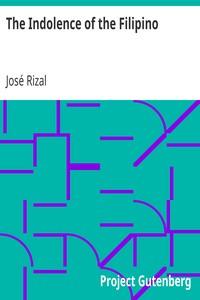

: Sleeping Fires: a Novel by Atherton Gertrude Franklin Horn - Autobiographical fiction; Psychological fiction; Domestic fiction; Married women Fiction; Books and reading Fiction; Triangles (Interpersonal relations) Fiction; Journalists Fiction; San Francisc
